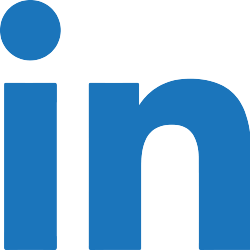Preventing Toxic Work Environments: Why Social Media Screening Is Essential for Your Brand's Success

In today’s digital age, your brand’s reputation can be made or broken by the people you hire. With the advent of social media, understanding who you’re bringing into your organization has become more important than ever. One of the most effective ways to ensure your company’s culture remains positive and productive is by implementing social media screening as part of your hiring process.
Introduction
Have you ever wondered how a few bad hires can disrupt the harmony of an entire workplace? Just like one rotten apple can spoil the bunch, one negative employee can turn your dream team into a nightmare. This is why social media screening has become a vital tool for businesses aiming to maintain a healthy and productive work environment. By taking a closer look at potential hires' online behavior, companies can avoid the pitfalls of hiring individuals who may contribute to a toxic workplace.

Understanding Toxic Work Environments
A toxic work environment isn’t just a buzzword; it’s a real issue that can affect every aspect of your business. Toxic workplaces are often characterized by poor communication, low morale, and high turnover rates. But what causes these environments to develop? More often than not, it’s the people you bring into the company.
The Role of Hiring in Workplace Culture
Hiring the right people is crucial to fostering a positive workplace culture. When you hire individuals who align with your company’s values and mission, you set the stage for a collaborative and productive environment. However, when the wrong people slip through the cracks, it can lead to discord, dissatisfaction, and ultimately, a toxic work environment.
What Is Social Media Screening?
Social media screening involves reviewing a potential hire’s social media profiles to get a better understanding of their personality, values, and behavior. This process can reveal red flags that might not be apparent during a traditional interview. For example, posts that reflect discriminatory attitudes, violent tendencies, or unprofessional behavior can be indicators that a candidate might not be a good fit for your company.
How Social Media Influences Workplace Behavior
Social media is a window into a person’s true self. The way someone interacts online often reflects their behavior in the real world. For instance, a person who frequently engages in online arguments or posts negative content may bring that same negativity into the workplace. On the other hand, a candidate who uses social media to share positive and constructive content is more likely to contribute positively to your company culture.

Benefits of Social Media Screening
Preventing Harmful Behavior:
By identifying red flags early, you can avoid hiring individuals who might cause harm to your team or brand.
Improving Workplace Culture:
Bringing in employees who align with your company’s values helps maintain a positive work environment.
Reducing Turnover:
Hiring the right people from the start can reduce the costs associated with high employee turnover.
Common Concerns and Misconceptions
Despite its benefits, social media screening is often met with skepticism. Some common concerns include invasion of privacy, potential bias, and the accuracy of the information obtained. It’s important to address these concerns by ensuring that the screening process is conducted ethically and consistently.
Legal Considerations
When implementing social media screening, it’s crucial to be aware of the legal implications. This includes adhering to anti-discrimination laws, obtaining consent from candidates, and ensuring that the information used in the screening process is relevant to the job. Legal guidance should be sought to navigate these complexities.
How to Implement Social Media Screening Effectively
To effectively incorporate social media screening into your hiring process, follow these steps:
Develop a Clear Policy:
Outline what you’re looking for and how the information will be used.
Obtain Consent:
Make sure candidates are aware that their social media profiles may be reviewed as part of the hiring process.
Be Consistent:
Apply the same standards to all candidates to avoid any potential bias.
Focus on Relevance:
Only consider information that directly relates to the candidate’s ability to perform the job.

Real-World Examples
There have been numerous instances where social media screening has helped companies avoid making bad hires. For example, a company might discover that a candidate has a history of posting offensive content online, which could be a red flag for potential discriminatory behavior in the workplace. On the flip side, a candidate who actively engages in community service and shares positive messages could be a great cultural fit.
Conclusion
Social media screening is not about prying into a candidate’s personal life; it’s about protecting your brand and maintaining a healthy workplace. By taking this extra step in the hiring process, you can prevent toxic work environments and ensure that your team is made up of individuals who will contribute positively to your company’s success. Ready to protect your brand from toxic hires? Contact Verify Now today for comprehensive social media screening services and ensure your team is built for success. Don't wait-safeguard your workplace culture now!
FAQs
1. What is social media screening?
Social media screening is the process of reviewing a potential employee’s social media profiles to assess their behavior, values, and overall fit for a company’s culture.
2. Is social media screening legal?
Yes, social media screening is legal, but it must be done ethically and in compliance with anti-discrimination laws. It’s advisable to obtain consent from candidates before conducting such screenings.
3. Can social media screening help reduce employee turnover?
Yes, by hiring individuals who align with your company’s values, social media screening can help reduce turnover by ensuring a better fit from the start.
4. What should employers look for during social media screening?
Employers should focus on behavior that might indicate a candidate's potential impact on workplace culture, such as discriminatory comments, violent content, or unprofessional behavior.
5. How can companies ensure fairness in social media screening?
To ensure fairness, companies should develop a clear policy, obtain candidate consent, and apply the same standards consistently across all candidates.
Visit our website www.verifynow.in
Call: +91 96061 76669 | WhatsApp: +91 96061 00669 | Email: sales@verifynow.in
.jpg)


